While you don’t need to be an expert cook to enter culinary school, there are a few things that may be helpful to know before you don your coat and enter the kitchen.
By understanding a few lesser-known aspects of culinary school, you may be able to skip a few surprises (and some potential embarrassment) and start your education off on the right foot.
With that in mind, here are five important things to know before starting culinary school.
1. There’s More to Culinary School Than Cooking
It’s true—a large part of culinary school focuses on exploring the culinary skills and techniques required to become comfortable in the kitchen. As a culinary school student, you might spend time exploring how to properly hold a chef’s knife, dice onions into uniform pieces, and create a creamy risotto.
However, don’t think you’ll spend all your time in the kitchen working with ingredients. Students in Escoffier’s Culinary Arts degree programs may also explore concepts including kitchen management, food safety, entrepreneurship, menu design, and foodservice math and accounting.
By becoming familiar with these concepts, you may become comfortable interacting with staff and managing finances as well as crafting new dishes and pairing ingredients.
As a student at Escoffier, you may have opportunities to explore where your food comes from during the Farm To Table® Experience. As you tour farms and talk with growers, you can develop a greater understanding of how food is produced and how different production methods affect taste and quality. Just don’t be afraid to get your hands dirty!
2. Utilize Your Talented Chef Instructors
While attending culinary school, students can appreciate start-to-finish instruction while preparing dishes. The Chef Instructors at Escoffier are celebrated in the industry for their culinary achievements as well as for their compassion and humility.
At first, it may be a bit intimidating to learn from such talented individuals, especially if you’re entering culinary school without much kitchen experience. However, it won’t be long before you may realize that your instructors are there to help you succeed on the road to becoming a chef.
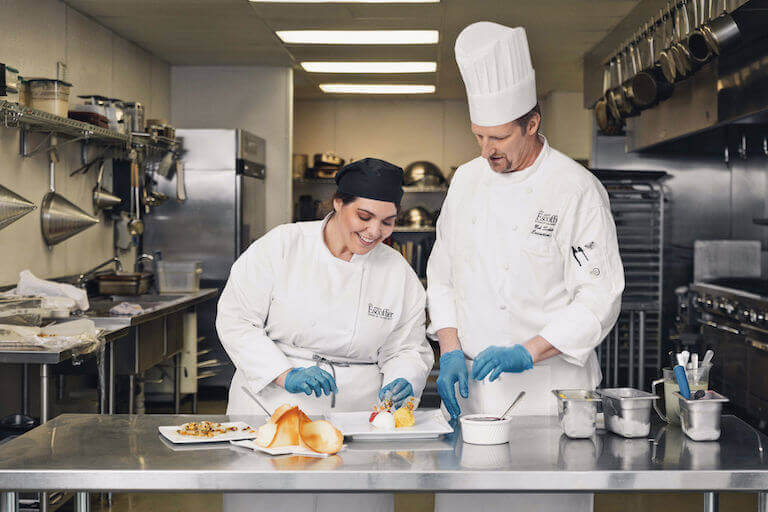
Escoffier Online Culinary Arts graduate Arnold Safari explains, “The quality of chef instructors is so good. It’s very personal, they really join hands with you one-on-one, they talk to you, and they walk you through every step of the program. I could reach out to any Chef Instructor whenever I needed.”*
But you don’t have to take a student’s word for it. As Chef Instructor Cesar Herrera says, “What I love most about my job is seeing my students progress week after week, and to share the knowledge I once got from my mentors with my students.”*
So when you enter culinary school, don’t be hesitant in reaching out to your instructors with questions. Not only can they help you refine your skills and techniques, but you may also find an instructor willing to serve as a culinary mentor.
The Essential Culinary Career Survey The Essential Culinary Career Survey What's your ideal culinary career: Fine dining? Your own restaurant? Pastry? Get our self-evaluation survey to find out! We’ve compiled a checklist of all of the essential questions into one handy guide: career options, culinary interest surveys, educational opportunities, and more.
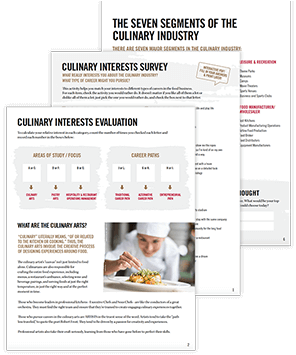

3. Balancing Organization and Creativity Is Key
While creative dishes often make headlines and draw in diners, every great chef knows proper organization is the backbone that supports these dishes.
As a culinary school student, you can quickly realize that organization is key to your success. Whether you’re setting up your workstation before you begin assembling egg rolls or balancing the demands of school work, family, and social life, organization can help you succeed.
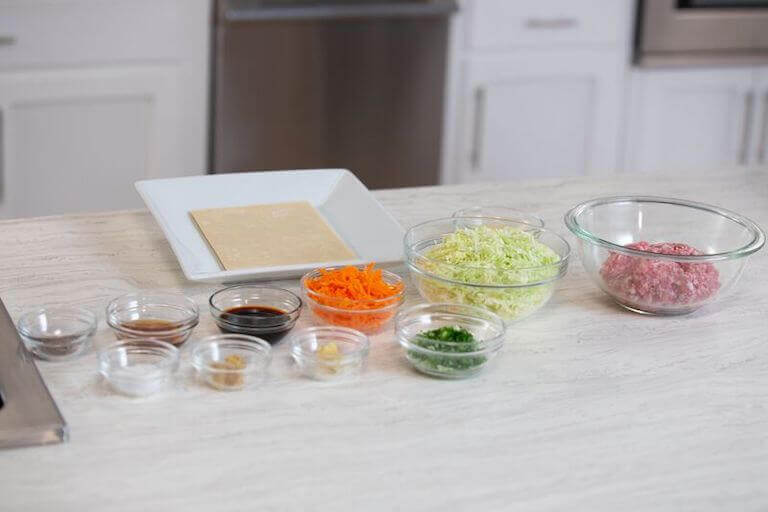
Fortunately, culinary school can provide the ideal environment for introducing or reinforcing the organization skills that many successful chefs possess. However, just because someone is organized doesn’t mean he or she will be a great chef. Along with being organized, chefs must also be creative.
While it may seem counterintuitive, an organized work environment and understanding of the fundamentals can help spur creativity.
“Understanding all the ins and outs of ingredients and techniques allows you to take your skills to the next level and even allows you more creative freedom to start creating your own recipes. So never stop asking ‘Why?’”*
Chef Jen Gross, Pastry Arts Lead Instructor
4. Culinary Externships May Spur a New Career
At the end of every Escoffier Culinary Arts program, students complete a hands-on industry externship before they graduate. This experience can not only give students the opportunity to practice what they’ve explored in school, but it might also connect them with other professionals and possibly serve as a launching pad for a post-graduation job.
Escoffier Culinary Arts graduate Parker Wilks-Bryant is one person who recognizes the impact an externship can have. After obtaining a 4.0 GPA at Escoffier, he landed an externship at Mexico City’s Pujol, known as one of the top 50 restaurants in the world.
“My first week was super hard. It put it into perspective. ‘Oh, my God! I pretty much just signed up for military boot camp for the next three months.’” said Wilks-Bryant.*
However, by remaining focused and putting in the work, he was able to connect with others at Pujol and leverage this experience to get to his current role at Caruso’s, a Michelin Guide restaurant.
5. View Inevitable Mistakes as Learning Opportunities
Part of any learning experience is making mistakes, and culinary school is no different.
The first time you complete a task as seemingly simple as dicing an onion or as technical as sous vide cooking a steak, you’re going to make mistakes. Rather than let these mistakes discourage you, see them as an opportunity to learn and improve.
And remember, your instructors are there to help you! If you’re having trouble mastering a concept or new technique, reach out for advice or support.
“What I love about teaching is sharing my successes and failures with my students. When you come into school, and we’re chefs and wearing our white coats, it feels like we’re bigger than we are. Really, we just have a little more experience than you do.”*
Chef Luke Shaffer, Chef Instructor
By becoming comfortable with making mistakes, you may then be able to take the steps necessary to improve your culinary skills. Any top chef can tell you a big part of cooking is taking responsible risks, so don’t let a fear of failure limit your goals and ambitions.
Explore Your Culinary School Options
If you have dreams of wearing a white chef’s toque or running your own restaurant or bakery, culinary school could be a great choice. The opportunity for creative insight, learning the business side of food, and building a network of connected alumni and Chef Instructors could help launch you into a rewarding career.
Whether you already have your mind set on attending culinary school or you’ve just begun exploring your options, our admissions team is happy to provide you with more information.
Like this article? Here are some others you might like, too.
- Should You Go to Culinary School? A Guide for Deciding
- Why Culinary School Is So Important for Networking And Career-Building As A Chef
- How You Can Get Into Culinary School
This article was originally published on January 11, 2016, and has since been updated.
*Information may not reflect every student’s experience. Results and outcomes may be based on several factors, such as geographical region or previous experience.

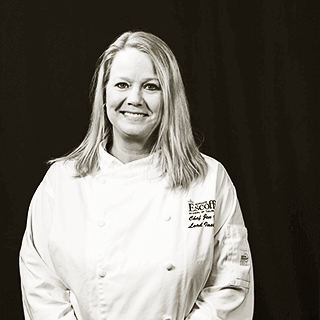 “Understanding all the ins and outs of ingredients and techniques allows you to take your skills to the next level and even allows you more creative freedom to start creating your own recipes. So never stop asking ‘Why?’”*
“Understanding all the ins and outs of ingredients and techniques allows you to take your skills to the next level and even allows you more creative freedom to start creating your own recipes. So never stop asking ‘Why?’”*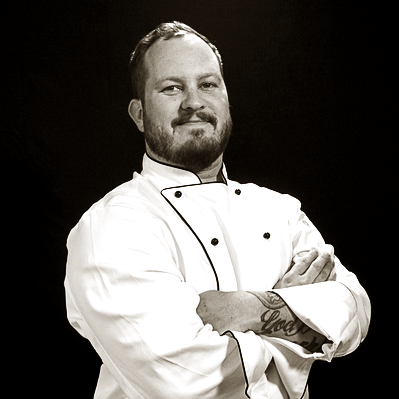 “What I love about teaching is sharing my successes and failures with my students. When you come into school, and we’re chefs and wearing our white coats, it feels like we’re bigger than we are. Really, we just have a little more experience than you do.”*
“What I love about teaching is sharing my successes and failures with my students. When you come into school, and we’re chefs and wearing our white coats, it feels like we’re bigger than we are. Really, we just have a little more experience than you do.”*